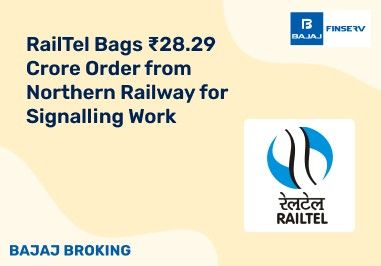Options trading is an effective hedging strategy that is marked by its flexibility. Investors can mitigate their overall exposure to risk by purchasing options to hedge against different trading positions. In addition to options trading for individual assets, it is also possible to carry out index options trading. In this article, we shall discuss
- What is index options trading
- Key benefits of index options trading
- Major risks of index options trading
What is Index Options Trading?
Index options trading entails purchasing an options contract for an entire index. Just as an options contract for an individual asset, say, shares, revolves around the expected price movement in the underlying asset, an index options contract is centered around the prospective price movements for an index, for instance, Nifty.
The value of any index is contingent upon the value of the securities that constitute it. As such, investing in an index options contract is a way to diversify your risk exposure and speculate which way the index will move and in what quantum.
How Does Index Options Trading Work?
Index options trading allows investors to speculate on or hedge against market movements based on a benchmark index. These options are available after index futures, requiring clarity on strike price, lot size, and expiration dates. In India, index option trading is popular as it limits potential losses for buyers to the premium amount while obligating sellers to meet contract demands when exercised.
Call Options
Call options give investors the right but not the obligation to buy the underlying index at a predetermined strike price on or before the expiry date. This allows them to benefit from rising market conditions in index option trading.
Put Options
Put options provide the right but not the obligation to sell the underlying index at a specified strike price on or before the expiration date. Investors use this to protect against market declines in index option investments.
Types of Index Options Trading
Index option trading offers various strategies to suit different market conditions and risk profiles. These strategies help investors optimise returns or manage risks effectively.
Covered Calls
Covered calls are used in index option trading to reduce the cost of holding an index, offering income potential when the market outlook is neutral to moderately bullish, but without downside protection.
Protective Puts
Protective puts are a bullish strategy in index option investments. They provide downside protection, ensuring limited losses if the market declines, while retaining potential upside gains.
Straddles and Strangles
Straddles and strangles involve buying both call and put options. These strategies in index option trading are ideal for highly volatile markets, anticipating significant price movements, regardless of direction.
Key Benefits of Index Options Trading
There are many benefits of index options trading, prominent amongst which are as follows:
- Ability to cap your losses: Index options trading enables investors to limit their losses. Even if the option ends up being unexercised, the maximum loss for the option holder is the premium paid for the purchase of the contract.
- Potential for substantial gains: Akin to options contracts for individual securities, index options contracts also carry potential for significant gains. Should the index move in the expected direction by a substantial degree, the option holder can exercise the contract and benefit from the price movement.
- Diversification across asset classes: In stark contrast with individual options contracts, index options contracts are diversified instruments. Since the underlying index represents either a particular sector with the securities of various companies or an entire benchmark index with various asset classes and sectors, the overall risk exposure of the investor gets spread and, therefore, reduced.
- Significant leverage: By opting for index options trading, an investor can benefit from substantial leverage. The upfront payment for the options contract’s premium constitutes a small percentage of the overall value of the contract.
- Low volatility: Since index options contracts are derivatives based on an entire index, they tend to be less volatile than options contracts for individual assets.
- Limited risk: Index options trading entails limited risk. Since the investor has the right but not the obligation to exercise the contract, the most they stand to lose is the premium paid to purchase the option.
- Composite strategy: Index options trading is seen as a composite trading strategy through which investors can attain exposure to an entire sector (for example, bank NIFTY for the banking sector) or the entire market (Nifty) by entering into one options contract.
Major Risks of Index Options Trading
Just like any other trading strategy, particularly derivatives trading, index options trading has several risks. Here are the key risks of trading in index options.
- Chasing a ticking clock: An index options contract comes with a predetermined time frame within which the option can be exercised. What is more is that the closer an options contract moves to its expiration date, the lower its value tends to become owing to the concept of time decay. Therefore, if the underlying index does not move in the expected direction and in the expected magnitude, the option holder may have to suffer a loss.
- Loss of upfront payment: If an index options contract is not exercised on or before its expiration date, it becomes a source of loss for the option holder. As a result, there is no way to recover the premium amount paid to enter into the contract.
- Selection of the right index: Although seemingly straightforward, index options trading can be extremely difficult. Not only does an investor have to decide which underlying index to choose, but they also have to make a somewhat close prediction of the price movements in the index within the time frame of the contract.
To sum it up
Index options trading offers investors an avenue to hedge against risks, diversify their options portfolio, and potentially make significant profits. It is, however, important to understand that index options trading carries an array of risks, which can lead to losses for the investor, albeit only to a limited degree.
Disclaimer: Investments in the securities market are subject to market risk, read all related documents carefully before investing.
This content is for educational purposes only. Securities quoted are exemplary and not recommendatory.
For All Disclaimers Click Here: https://bit.ly/3Tcsfuc













